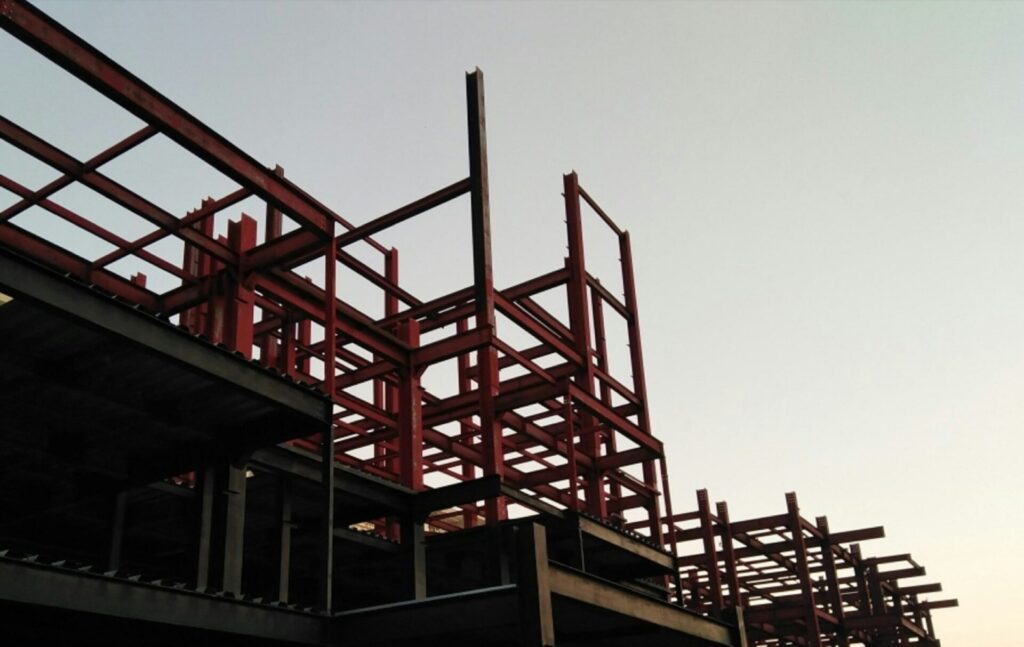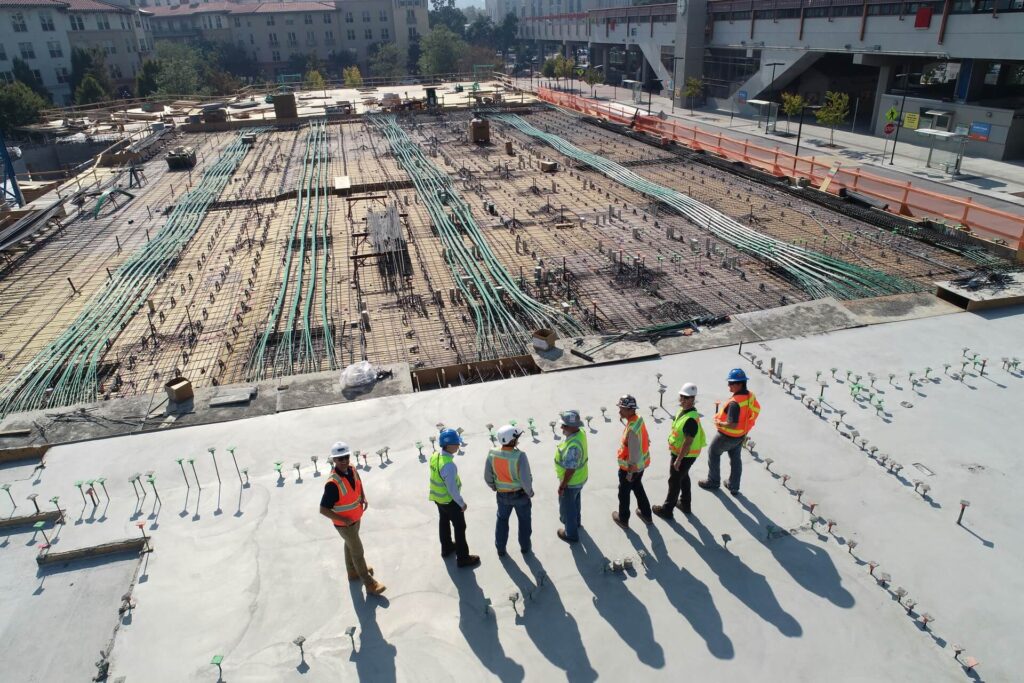
We are reader-supported. When you buy through links on our site, we may earn an affiliate commission.
The construction industry offers plenty of career opportunities. While you may associate construction with wearing boots and a hard hat on-site, various construction office jobs are essential to successful project planning, execution and completion. If working on-site isn’t for you, but you’re still passionate about construction, these office jobs might be the perfect fit. Here’s a look at the top 10 construction office jobs to kickstart your career.
1. Project Manager
A project manager is one of the most popular construction office jobs. A project manager is the backbone of any construction project. They’re responsible for planning, executing and closing projects. Their duties include coordinating resources, managing budgets and ensuring they meet timelines. Strong leadership, communication and problem-solving skills are crucial for this role. Project and construction managers are among the highest-paid professions in the construction industry, as they oversee the work and the employees.
The role of a project manager often involves meeting with clients, subcontractors and other stakeholders to ensure everyone is on the same page. They must anticipate potential issues and proactively develop solutions to keep the project on track. To be a successful project manager you must be able to juggle multiple responsibilities and maintain a clear focus on the project’s goals. Management is a fantastic way to advance your career by gaining field experience.
2. Estimator
Estimators play a critical role in the planning stages of a construction project. They analyze costs and prepare detailed estimates based on project specifications. This job requires a keen eye for detail, math proficiency and knowledge of specialized estimating software.
An estimator needs to understand construction materials, methods and market conditions. They often work closely with architects and engineers to ensure their estimates are accurate and comprehensive. Effective communication and negotiation skills are also important, as they frequently interact with suppliers and subcontractors.

3. Scheduler
Schedulers create and manage timelines for construction projects. They work closely with project managers to develop detailed schedules outlining all project phases. A scheduler must have strong organizational skills, attention to detail and proficiency in scheduling software like Primavera or MS Project.
As a scheduler, you’ll need to have a deep understanding of the sequencing of construction activities and how delays in one area can impact the entire project. You must adjust schedules in response to unforeseen circumstances and maintain clear communication with all team members to keep the project on track.
4. Construction Administration
Construction administration handles the administration tasks associated with construction projects. Their duties include processing permits, managing documentation and coordinating with various stakeholders. This role demands excellent organizational and communication skills, as well as knowledge of construction projects.
Construction administrators play a crucial role in ensuring all regulatory requirements are met and all necessary documentation is completed and filed appropriately. They serve as a central point of contact for project information and must be adept at handling multiple tasks simultaneously while maintaining attention to detail.
5. Health and Safety Officer
Health and safety officers ensure construction sites adhere to safety regulations and standards. They conduct site inspections, develop safety policies and provide employee training. This position requires a strong understanding of safety protocols, attention to detail and the ability to handle emergencies.
In addition to routine inspections and training, health and safety officers must stay current with evolving safety regulations and best practices. They need to foster a culture of safety on-site and ensure all team members understand and comply with safety procedures. Their work is essential to preventing accidents and ensuring the well-being of all workers. Health and safety technicians are generally well paid, and you just need a high school diploma or an equivalent qualification to become certified.

6. Design Coordinator
Design coordinators act as the bridge between the design team and construction team. They ensure the design specifications are accurately translated into the construction process. This role demands strong communication skills, attention to detail and a good understanding of design principles and construction methods.
Design coordinators often review plans and drawings, ensuring they’re feasible and meet the project’s requirements. They must also interpret technical drawings and specifications and effectively communicate any necessary changes to the design and construction teams. Their role ensures the final build aligns with the design intent.
7. Human Resources Manager
Human resources managers in the construction industry handle recruitment, employee relations and labor law compliance. They ensure the company attracts and retains skilled workers. This job demands strong interpersonal skills, organized abilities and HR knowledge.
HR managers also play a crucial role in developing company culture and ensuring employee satisfaction. They must stay updated on labor laws and industry trends to advise management on best practices. Their efforts in employee development and conflict resolution contribute to a productive and harmonious workplace.
8. Quality Control Manager
Quality control managers ensure that construction projects meet specified quality standards. They conduct inspections, oversee testing and ensure compliance with building codes and regulations. This role requires strong analytical skills and thorough knowledge of construction standards.
Quality control managers develop and implement plans to ensure all work is performed to the highest standards. They must stay current with the latest construction techniques and materials to identify potential issues before they become problems. Their efforts are key to delivering a finished product that exceeds client expectations.

9. Procurement Officer
Procurement officers are responsible for sourcing and purchasing materials and equipment for construction projects. They negotiate with suppliers, manage contracts and ensure material deliveries arrive on time. This job requires strong negotiation skills, attention to detail and an understanding of supply chain management.
Effective procurement officers must balance cost, quality and delivery time when selecting suppliers. They need to build and maintain strong relationships with vendors to secure the best deals and ensure a steady supply of materials. Their ability to forecast demand and manage inventory can significantly impact the project’s budget and timeline.
10. Cost Engineer
Cost engineers focus on managing and controlling project costs. They develop cost control systems, perform cost analysis, prepare financial reports and manage project budgets. This role requires strong analytical skills, cost management software proficiency and an excellent understanding of construction economics. You can drastically increase your earning potential if you become a certified cost engineer.
Cost engineers work closely with project managers to forecast expenses and track actual costs budgets. They must be able to identify cost-saving opportunities without compromising quality or safety. Their ability to provide accurate financial data ensures the projects are completed within budget.
Kickstart Your Career in Construction
Starting a career in the construction industry doesn’t necessarily mean working on-site. These office construction jobs are integral to project success. Whether you have a knack for numbers, a talent for organization or a passion for safety, there’s a construction office job perfect for you. If your passion lies in construction but you prefer the stability and structure of an office environment, these roles provide a fantastic balance, allowing you to be a critical part of creating the buildings and infrastructure that shape our world.







